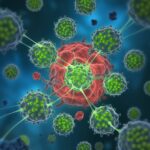The leading cause of death for the population is vascular disease. This includes damage to blood vessels and the resulting heart attacks and strokes. These risks are higher in patients with inflammatory rheumatic conditions, like lupus or rheumatoid arthritis. These risks are due to the disease and certain treatments, such as cortisone-derived drugs.
Up until now, the doctor’s advice to lower these risks was based primarily on avoiding certain risk factors. It included reducing cortisone medication, stopping inflammation, and conventional advice like quitting smoking, controlling hypertension, and lowering cholesterol.
Researchers from Sapienza University of Rome in Italy who were involved in the study think that patients can improve their vascular health through activities they enjoy. These investigators’ laboratory findings suggest that caffeine in tea, coffee, and cocoa actively supports endothelial cells. This group of cells is involved in vascular tissue’s growth and helps regenerate blood vessel lining.
No doubt eating a diet high in vitamins D and A, as well as polyunsaturated fat (found in fruits), and low in salt, can help reduce inflammation.
Researchers have also wondered what caffeine does. Caffeine has a stimulant and anti-inflammatory effects on the body. It binds to the receptors on the immune cell surface. Many studies have been conducted on the effects of caffeine on heart health but with contradictory results.
Researchers studied 31 patients with lupus who did not have traditional cardiovascular risk factors. They used a 7-day food survey. The investigators measured the blood vessel health in the blood of the patients after a week. The investigators found that caffeine-consuming patients had better blood vessel health as measured by endothelial cells. These cells form the innermost layer of blood vessels.
Fulvia Ceccarelli, the lead author of the study, said that the present research was an effort to inform patients about the role diet may play in controlling disease. It will be important to confirm these results in a long-term study aimed at assessing coffee’s real impact on disease progression.
This research is entitled “Caffeine promotes endothelial cell survival in Systemic Lupus Erythematosus.”

In a study, caffeine intake is linked with better cardiovascular health by www.medicalguro.com
Posted inUncategorized


